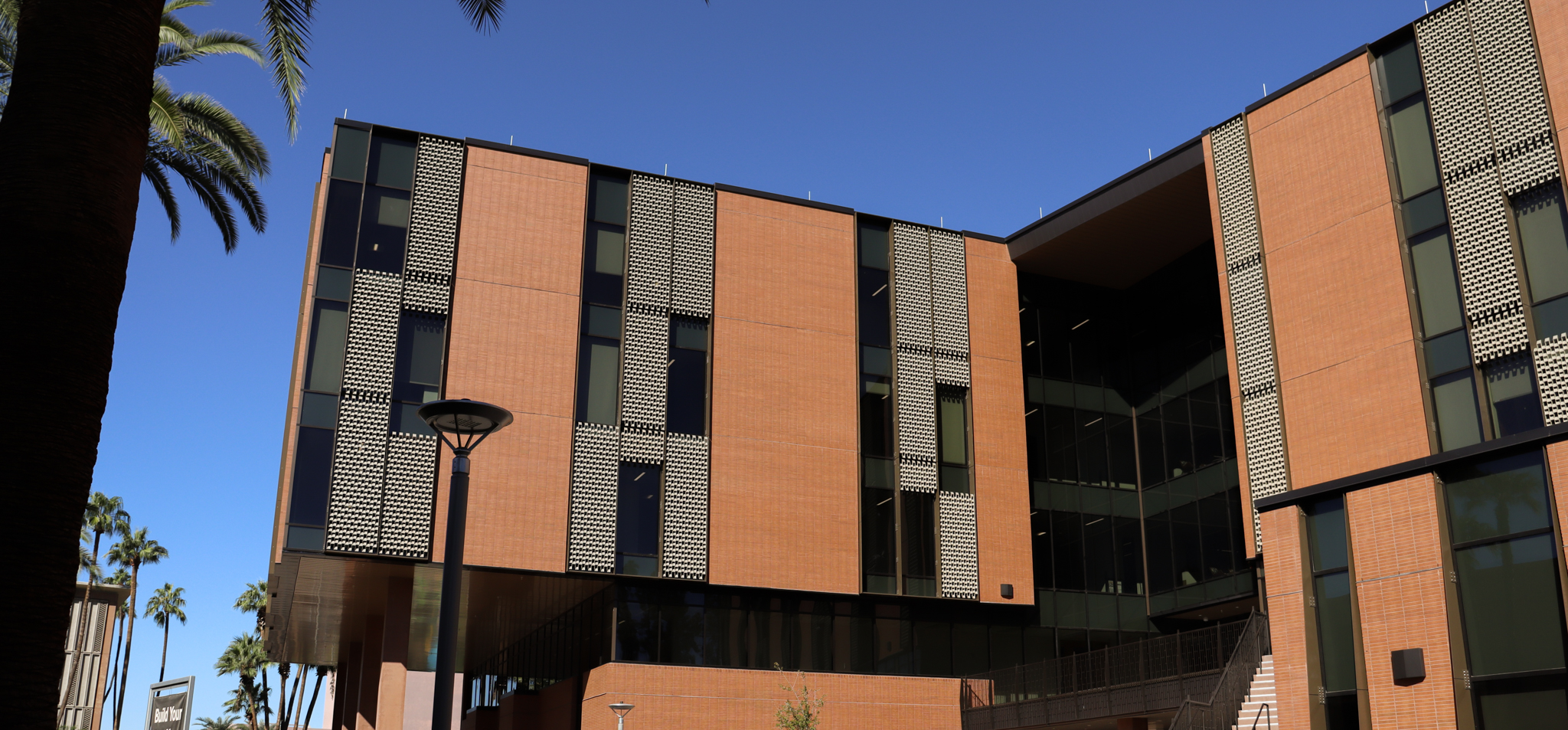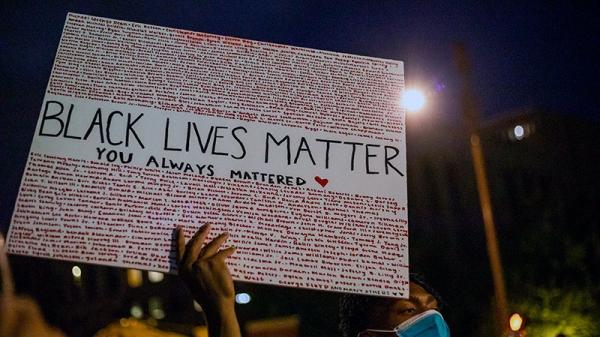AAPI resource guide for our students and community
Understanding Racism Resources
History of Black/Asian solidarity and anti-Asian violence
Asian Pacific American Studies Statement on the Atlanta Mass Shooting
March 22, 2021
The faculty in Asian Pacific American Studies at Arizona State University grieve alongside the victims’ families and communities in Atlanta and nationwide after 8 people, 6 who were Asian American women, were murdered in Georgia on March 16, 2021. We mourn the tragic loss of Soon Chung Park, Hyun Jung Grant, Suncha Kim, Yong Yue, Delaina Ashley Yaun, Xiaojie Tan, Daoyou Feng, and Paul Andre Michels. We reaffirm our support for Asian, Asian American, and Pacific Islander faculty, staff, and students at ASU; and for Asian, Asian American, and Pacific Islander residents of Arizona, as we and our communities continually confront anti-Asian racism, discrimination and violence in all its forms. We recognize this is not an isolated incident of hate but a longstanding American history of gendered racism and violence against Asian American and other women of color (Leong & Kuo, 2021).
White supremacy and anti-Asian violence has sharply risen across the United States and globally since the outbreak of COVID-19 a year ago, even though overall hate crime dropped 7% in 2020 in comparison to the previous year (Center for the Study of Hate & Extremism, 2021). The lack of courageous political leadership when the pandemic arrived in the United States resulted in virulent racism and scapegoating when the former U.S. president and his officials continually blamed the spread of COVID-19 on China. Those racist statements and misdirected blaming have contributed to a rise in anti-Asian racism, misogyny, and elder abuse, including violent attacks on Asian Americans nationwide. Moreover, law enforcement and media continue to question whether these attacks were racist in nature or hate crimes; and continue to call for investigations or excuse the behavior of the perpetrators when our Asian American and Pacific Islander community are well aware these incidents are hate crimes due to the continuous attacks that are race based, situated in a longer U.S. history of white supremacy (Lee, E., 2015).
Tragic stories about the direct experiences of hate incidents reported to the Stop AAPI Hate national reporting center show that Asian, Asian American, and Pacific Islander individuals and communities are experiencing a great deal of anti-Asian racism and violence with an underestimate of nearly 4000 hateful acts in the last year. Of notable interest, AAPI women were twice more likely than men to report hate incidents and no state or ethnic density of AAPI were immune to the violence. This includes our home of Arizona and the recent murder of 74-year-old, Filipino American Juanito Falcon who was punched by a stranger in Phoenix on February 16, 2021 and died two days later because of his head injuries (Gonzalez, Arizona Republic, 2021).
The faculty in Asian Pacific American Studies at ASU join our students and other community organizations statewide in condemning anti-Asian racism and violence that take the multiple forms including but not limited to physical assaults, verbal harassment and name calling, shunning, microaggressions, civil rights violations (e.g., denial of service and workplace discrimination), and murder. Last year, Asian American and Pacific Islander students at ASU decried anti-Asian violence that resulted in microaggressions and blatant racism against Asian international students and Asian American residents in Arizona. Several incidents of racism, including threats of violence, were directed at members of our ASU community. We applaud these ASU students, many members and leaders of the ASU Asian/Asian Pacific American Student Coalition and their ASU student coalition allies, for their courageous leadership for naming and speaking out against this racism and violence.
We thank these students for their commitment to racial justice on the ASU campus and beyond. We applaud their principled refusal to participate in anti-Black racism, instead recognizing how xenophobia and anti-Black racism are linked together. We collectively refuse to be used by the system to condemn other communities who also are targeted by institutional violence. We stand together with our community and allies in healing and seeking social justice.
We curated a resource guide for our students and community: https://bit.ly/APAS_resources.
In solidarity,
APAS Faculty
Aaron Bae
Rudy Guevarra Jr
Karen Kuo
Karen Leong
Wei Li
Kathryn Nakagawa
Aggie Yellow Horse
Brandon Yoo
Statement from the School of Social Transformation
Source: Cronkite News – Arizona PBS
June 5, 2020
The killings of George Floyd, Ahmaud Arbery, Breonna Taylor, Tony McDade, and Dion Johnson - few among thousands - are part of a legacy of centuries-long state-sanctioned violence against Black and other non-white bodies. Their murders are emblematic of U.S. social structures that are entrenched in white supremacist practices, imperialism, capitalism, and heteropatriarchy. The School of Social Transformation (SST), and our constitutive units – African and African American Studies, American Studies, Asian Pacific American Studies, Justice and Social Inquiry, and Women and Gender Studies – have long worked toward interrogating racial justice in our research, our teaching, and our community-engaged scholarship and service. Our individual and collective work activates the very conversations we are broaching today, as a country, to expose the long and destructive nature of the ideology and practice of white supremacy. Many of our academic programs grew out of the intellectual and activist roots of the Civil Rights and New Left social movements of the 1960s, a moment which looks much like our current moment because it dared to engender democracy, and we are beholden to that tradition. In fact, it was student protests that demanded and laid the foundation for the establishment of African and African American Studies at Arizona State University.
Today, on what would have been the 27th birthday of Breonna Taylor, SST stands with the Movement for Black Lives (#M4BL) and all other intersectional BIPOC (Black, Indigenous, People of Color, including Latinx and Asian-American) movements, recognizing the deep history of police violence and murder, including lynching, that remain at the foundation and in the contemporary social fabric of this country. We affirm and share in the pain, anguish, and rage that many are feeling – not just in this current moment but that many have felt for centuries. We remain committed to a radical re-visioning of our country that deals frankly with the living legacies of settler colonialism, slavery, anti-Black racism, immigrant exclusion, transphobia, and homophobia as we pursue a truly just, equitable, and democratic society.
We support our students, and the communities that surround us, as they endeavor to make their voices heard to end the cycle of silence surrounding the systemic violence embedded in U.S. institutions. We will continue the fight against systems of oppression and, through our scholar activism, work to amplify voices against this state-sanctioned violence enacted on the most vulnerable. We honor the voices of activists, organic intellectuals, and community members that teach us the way forward and model social transformation.
Black Lives Matter PHX Metro
Poder in Action
Phoenix Local Organizing Committee for Justice or Else
Mass-Liberation Arizona
Black Phoenix Organizing Collective
Puente Human Rights Organization
American Indian Movement Central Arizona Chapter
K’É Infoshop
#JusticeForDion
#SayHerName
#BlackLivesMatter
#M4BL
School of Social Transformation
Arizona State University


